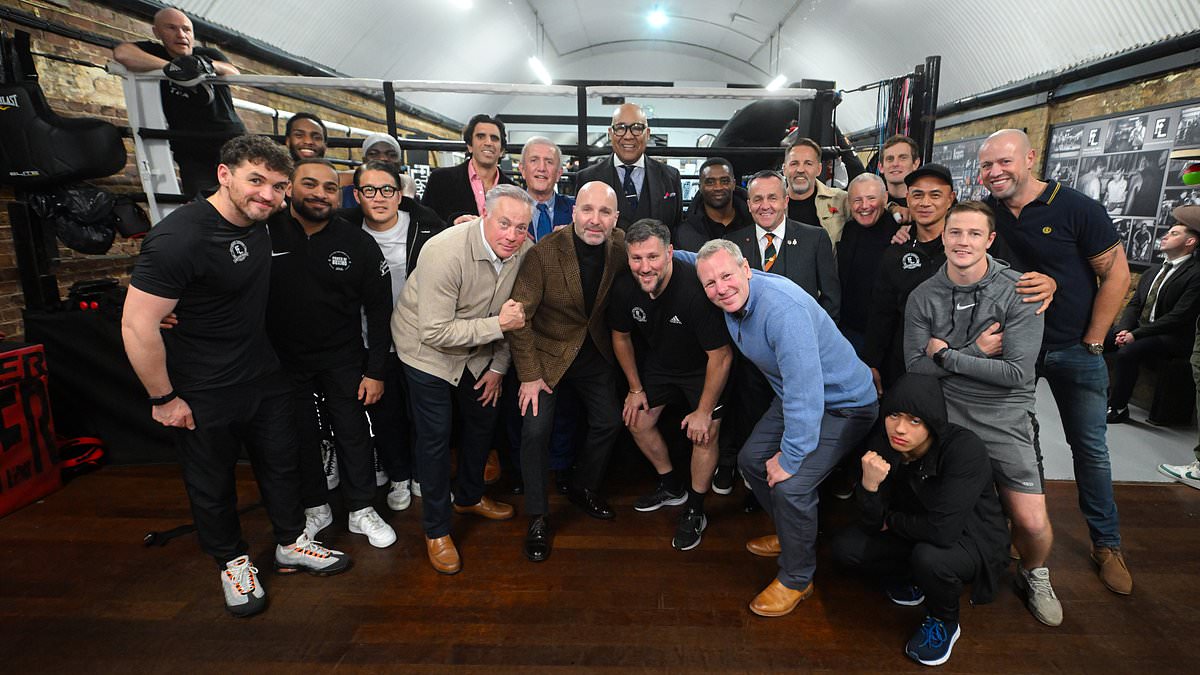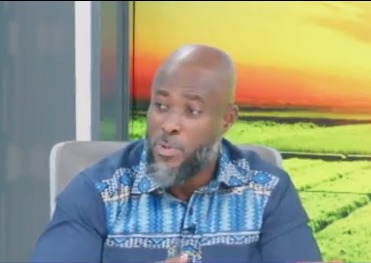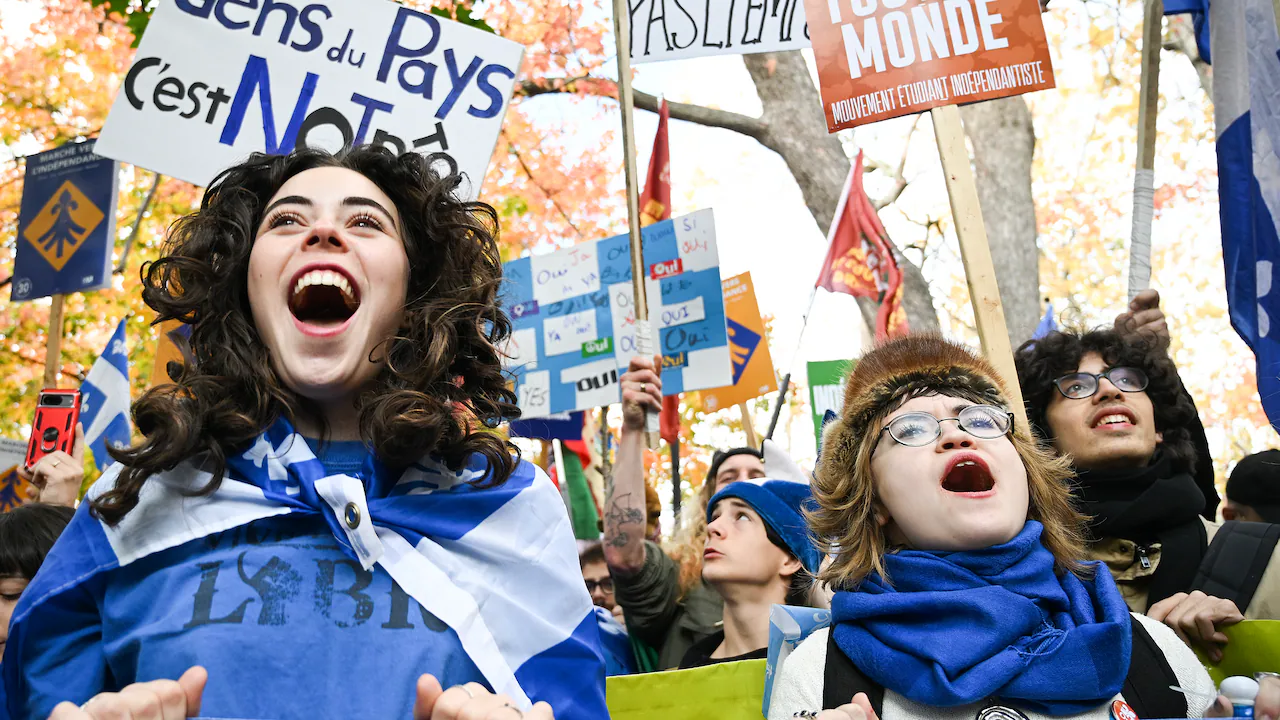Copyright dailymail

The approach to the place is unprepossessing – a roughly graffitied wall, tucked under a railway arch near London’s Lambeth Bridge – and though the insignia above the door is bold, there is nothing to suggest the fundamental beauty of what lies within. That insignia – ‘FL’, in an elegant, modern font - declares the place to be the home of Fitzroy Lodge: an amateur boxing club to those unfamiliar with the warp and weft of boxing; a boxing institution and sanctuary, to those who have come to know it as one of the pillars of the amateur sport. A place where, in the difficult and complicated world they now find themselves, boys of all creeds and colours find community, refuge, purpose and a code of how to live. The club was founded in 1908 by a local doctor, in an attempt to improve the health of the residents of Lambeth through exercise, but it evolved into something far greater when it moved underneath the arches here, more than 75 years ago. Under the custodianship of two giants of the London boxing scene, Billy Webster and Mick Carney, it became a place which, in the words of one of its many alumni, took in ‘waifs, strays, street lunatics and world-class fighters’ - moulding, shaping and creating every type of boxer, while helping boys to become men. Webster and Carney passed away within nine months of each other in 2011, handing over the baton to another coach steeped in the place’s culture, distinguished former amateur fighter Mark Reigate. Reigate could easily have gone on to become a successful coach to pro boxers but instead stayed, to transform the lives of those who walk up that graffitied alley and step through the doors. Young boxers are not the only ones whom ‘the Lodge’, under Reigate’s leadership, has come to help in recent years. Ex-servicemen, facing physical and mental struggle after time in the line of duty, are brought to train and spar here by the The Fighting Chance charity. So are disadvantaged, excluded young people scooped up by the Lodge’s partner charity, Carney’s Community. The years and the use had taken a heavy toll on the old place. The water seeping relentlessly through the corrugated arched roof had stained the walls. The floor was desperately worn. The changing rooms were barely fit for purpose. An exterior wall was collapsing. But on Tuesday night, a restored and revived Fitzroy Lodge emerged after an ambitious refurbishment project which, in inestimably subtle ways, has managed to retain the soul of the place. The distinctive corrugated roof fondly known to generations here remains, with a new gutter system cut into the walls. A new airflow system means there is no longer condensation on the gym’s legendary and prominent mirrors. A new floor through the place has been laid in a way which retains the little grooves and imperfections known to all those who have stepped through. Among them, David Haye, the multiple cruiserweight and heavyweight world champion, who was first led into the place as a 10-year-old and left in the company of men and brawlers. The distinctive swing doors which lead though to the newly refurbished and insulated dressing rooms have been coated with low impact paint so they will quickly wear and resemble the old ones. The words that an old Fitzroy trainer, Freddie Hill, once scrawled in blue paint on the gym walls – ‘Learn to Listen, Listen to Learn’ – have remained. They’re still only half decipherable and that is part of the charm. It's very much a gym for women boxers, too. The refurbished women’s changing rooms in part of the corrugated roof space transform the environment for them. And taking its place beneath the black and white images of Webster and Carney, who look down beneficently on their gym’s thriving boxing life each evening, there is now a plaque marking the contribution to boxing journalism of Daily Mail Sport’s Jeff Powell MBE. Unveiled on Tuesday by Lord Rothermere, Jonathan Harmsworth, it was the way that the Rothermere Foundation, whose £150,000 charitable contribution has made the refurbishment possible, wanted to mark this staging post in the Lodge’s journey. It was a moment to reflect on Powell’s journalistic contribution across more than 35 years of reporting on the sport’s greatest fights from around the world. But the refurbishment, inspired and supervised in an unstated way by one of the gym’s driving forces, Rupert Harmsworth, was also an opportunity to consider the understated and unappreciated part boxing plays in salving the divisions threatening some of London’s most challenged communities. It does so by inculcating a code of respecting others and leaving troubles at the door. Visitors find the gym’s young men have been taught to extend a hand and word of welcome to them - unusual in the modern world. ‘Respect is the fundamental,’ says Reigate, whose work many here feel befits an MBE. ‘This place taught me that. I was one of those kids that always got into trouble. Ducking and diving. Fitzroy Lodge saved me, taught me about routine, control and structure. I wanted to give something back.’ His coaching team includes Liverpudlian Robbie O’Neill, an actor and screen writer who juggles that work with mentoring boys facing the risk of exclusion from school. O’Neill’s perspective on the challenges for young boys is particularly acute, given that he had an acting role in Adolescence, the award-winning Netflix drama which highlighted the pressure of social media and online subcultures on young men — particularly themes like misogyny, the ‘manosphere’ and toxic ideas of masculinity. ‘These kids get lost,’ O’Neill says. ‘This isn’t just about the manosphere but it’s gang culture, football hooliganism, the casual subculture. Everyone is looking for something to belong to and if you find a place like this you do belong. In a modern age when a lot of young lads are struggling to make sense of who they are and what the world is, you’re "a Lodge boy". 'People think boxing is an individual sport but these lads are part of a collective. This is a place young people can go, let off some steam and if they want someone to talk to, we’re there for them.’ It takes all kinds of life experience to give a team of mentors legitimacy. Linton Aymer, another of Reigate’s coaches, first walked into Fitzroy Lodge in 2006 shortly after serving a five-year prison sentence for conspiracy to burgle. ‘We were doing the jewellery shops in the West End – taking the Rolexes,’ he relates, before sparring with Lodge boxer Ede Omoregie. ‘That was the thing for me and my boys back then.’ He went back to jail in 2012, before returning to boxing and this gym after his release in 2016. ‘I tell them how it is,’ he says. ‘How I got stabbed five times and have been shot in the leg. And ‘I say, “Whatever it is you’re doing, you need to stop, mate, because everything you’re doing, I’ve already done.” We tell them: “Whatever your problems are outside the gym, leave it outside the gym, leave it outside the gym. We’re all one in here.” I also see life differently now.’ It is the conversations with young boxers which most attest to the kind of young people ‘the Lodge’ sends out into the world. ‘My life’s not always been easy but when I came here I felt a sense of belonging,’ says Akin Tijani, 22, a recently crowned England national champion who aspires to fight for Team GB at the next Olympics, arriving to train and spar last week. ‘There are people from different backgrounds, different environments but one common denominator. When I lost my love for the sport, this was the place that kept me going.’ One of the old familiar sounds known to generations at Fitzroy Lodge - trains thundering across the tracks above the arches - has receded into the background now, with noise insulation a part of the refurbishment. But the unmistakable, quintessential boxing gym smell is still there from the minute you step through the doors. ‘Places like this are the heartbeat of boxing,’ says Powell. Carney, one of those two mighty men who moulded the place, always told his young boxers to be ‘the best you can be in life.’ Amid the contemporary anxiety about how to help young people in urban communities blighted by violence and knife crime, we would do well to put those words above the door of every school.



